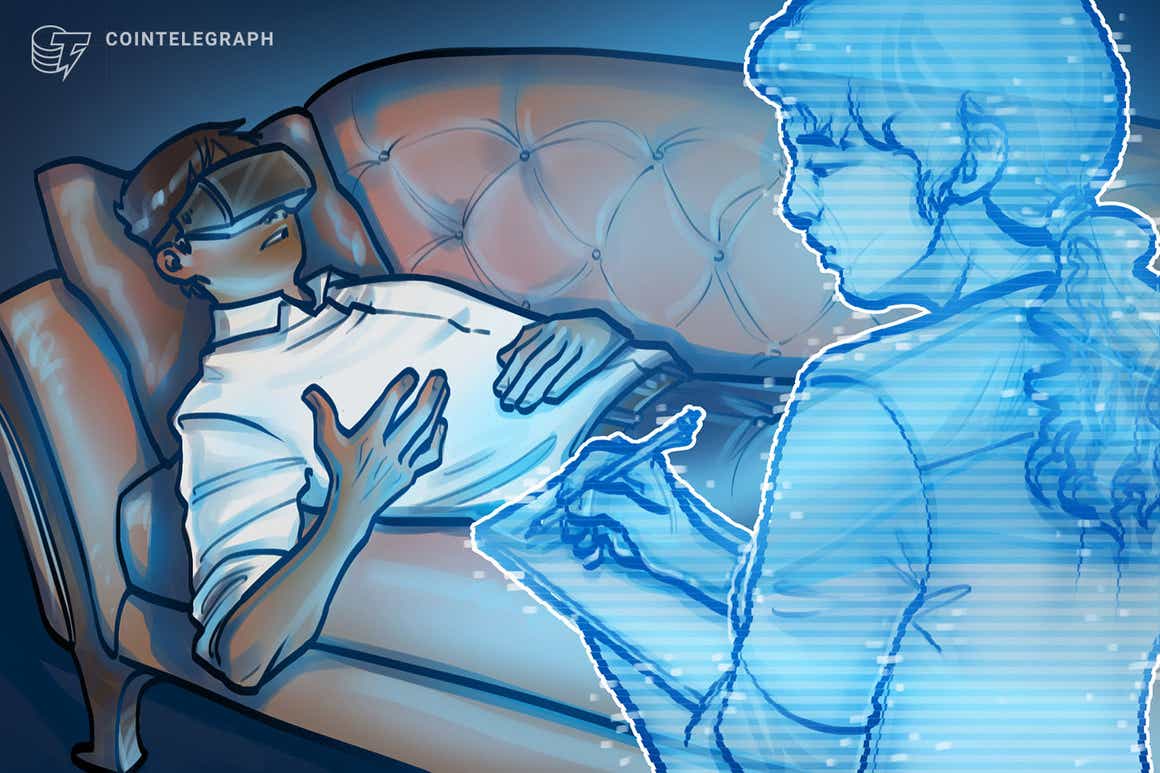The world is becoming more connected as cryptocurrency, blockchain, nonfungible token projects, the Metaverse and other online communities gain popula
The world is becoming more connected as cryptocurrency, blockchain, nonfungible token projects, the Metaverse and other online communities gain popularity. However, we’re also seeing rates of depression and feelings of isolation and loneliness skyrocket. This development is certainly not causal, but it is something to consider as younger generations become more involved in virtual spaces. The global COVID-19 pandemic has exacerbated a national mental health crisis. Mental Health America reported that 47.1 million people in the U.S. are living with a mental health condition. That’s one in five Americans, folks.

Unsettling as those figures may be, progress is being made with modern therapies and treatments in and out of virtual worlds. Would you consider logging onto your computer to meet with your cryptographically certified doctor or therapist? How about receiving a prescription delivered to your door? Many young people actually feel more comfortable in a virtual setting, surrounded by peers and represented by their chosen avatar.
So how does this dream become reality? It all starts with innovation and nature. Researchers and doctors have been exploring the medicinal world of fungi and their power to heal and regenerate. Fungi have been core to this planet’s wellbeing for billions of years, and we’re just beginning to understand the psychoactive effects that certain fungi have on the human psyche.
Related: The next generation of data-driven healthcare is here
The war on drugs
President Richard Nixon put a halt to all research on psychedelics in 1970 when he deemed renowned psychologist and writer Timothy Leary the most dangerous man in America. He began the war on drugs and convinced society that these psychoactively medicinal fungi were the devil’s work. Scientific research into the benefits of psychedelics was set back twenty years before researchers could start back up and resume their studies. Now, psychedelics are making headlines, and the efficacy of the treatments is showing possibly the best results known to science. It’s the right place to be.
Through psychedelic therapies, such as those being professionally performed in research being conducted by the Multidisciplinary Association for Psychedelic Studies (MAPS), the UC Berkeley Center for the Science of Psychedelics, the Center for Psychedelic Medicine in NYU Langone’s Department of Psychiatry, the Center for Psychedelic Research at Imperial College London, the Johns Hopkins Center for Psychedelic and Consciousness Research, and other institutions, patients are learning how to process their trauma instead of suppressing it. With minimal doses of psychedelic medicine, recovery rates trend upwards and patients continue to get better on their own.
Related: The crypto world should know about longevity
Where healing happens
The beauty of psychedelic treatment is that it’s not a daily prescription. By studying psilocybin, the hallucinogenic alkaloid found in so-called “magic mushrooms,” with regard to the treatment of depression, PTSD, and anxiety, researchers are identifying the root causes of the patient’s problem in just a few sessions. Psychiatric drugs that reduce symptoms, on the other hand, must be used on a daily basis and can have serious side effects. They’re not cheap, either.
MAPS founder Rick Doblin said: “Psychedelics work by reducing activity in what’s known as the brain’s default mode network — it’s equivalent to our ego. Our ego filters incoming information according to our personal needs and priorities. During a dose of psilocybin, our ego shifts from the foreground to the background. It’s part of a larger shift of awareness. This shift is the most important experience, and patients feel more altruistic.” This is where healing begins.
Neurogenesis in action
The fact that psychedelic research is now being welcomed and practiced is a huge win for the medical world. In the next two years, it is likely that MDMA-assisted therapy to treat PTSD and psilocybin-assisted therapy to treat depression will be legalized in the United States. Dr. Owen Muir, co-founder of Brooklyn Minds Psychiatry, said, “In the first MDMA phase three trial, MDMA-assisted psychotherapy for PTSD was found to be more effective than any medication for any condition for psychiatry. It’s literally the most effective drug we have for anything.” Change is coming, and it’s needed now more than ever.
The Metaverse and medicine
On top of this news, excitement is brewing around the Metaverse. Dr. Muir is developing programs for psychoeducation and group therapy in the virtual world with a focus on meeting patients where they are and supporting them through their journey in the most secure fashion. Dr. Muir’s team wants to break cultural barriers and stigmas often found in doctor-patient relationships. One way of accomplishing this is by using an avatar to represent patients and doctors. Perceptions change about who a person is, where they come…
cointelegraph.com
